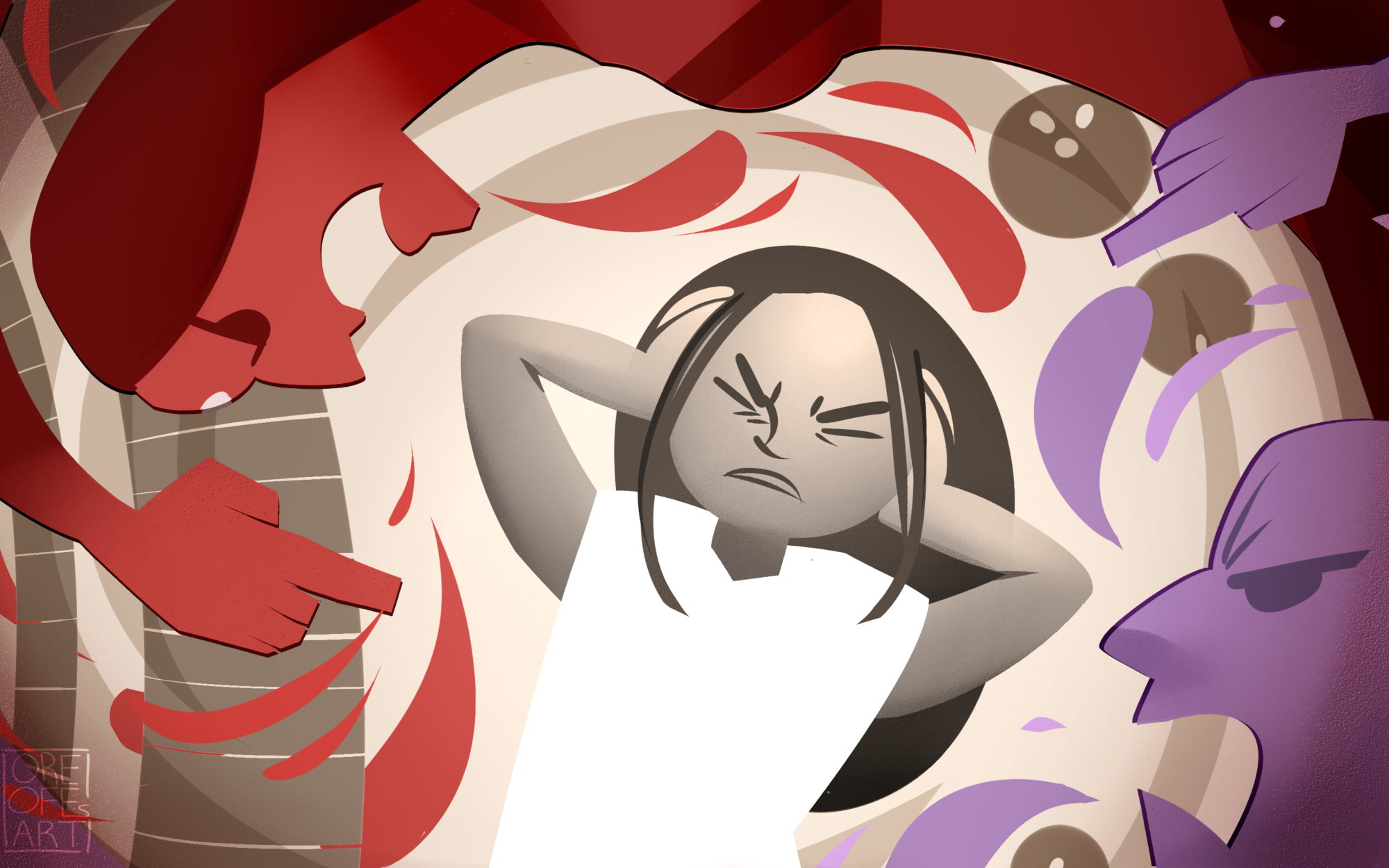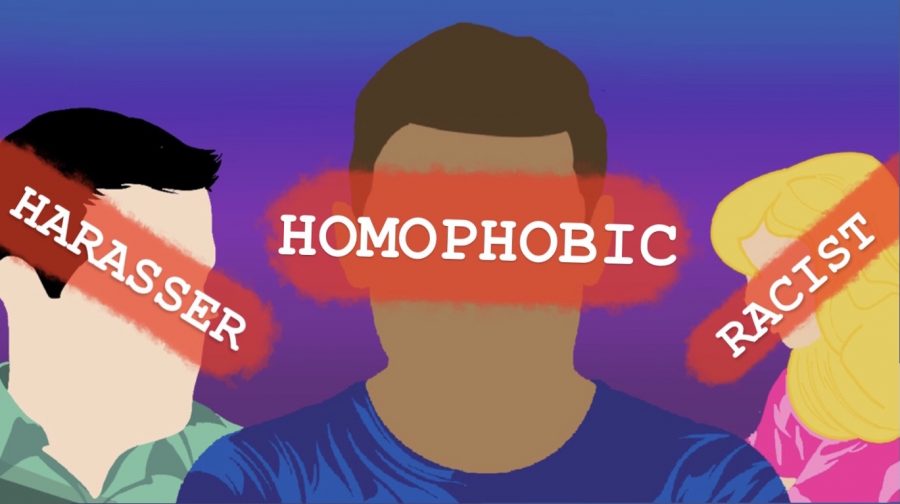The Postmodern Question
“People know what they do; frequently they know why they do what they do; but what they don't know is what what they do does.” - Michel Foucault, French philosopher.
The early 90's witnessed rolling back of state(decrease in government intervention) brought upon by neo-liberalism(resurgence of free-market capitalism). This was quickly followed by an increased economic growth, prosperity and overall development all around the world. It also bankrolled the increased interdependence of nation states - turning the world into a global village i.e. globalisation. All those changes that came along in the late 20th century gave rebirth to one of the dying streams of political thought. There was a rising skepticism, especially in the western intellectual corridors. Some questions that we all thought we were done with, started springing back up again. Questions such as - What does it mean to be human? How do human beings fit into this universe? Is god real? Why be moral? We are living in a time of great uncertainty. A time where we are caught in the transition from a forward looking and a deeply passionate optimism about the future to a phase of never ending skepticism and spirit of nihilism, constantly engaged in finding flaws in the way mankind conducts itself. We live in a postmodern time.
The term 'Postmodern' gets thrown around a lot. Although, it has not yet become a buzzword among the 'I'll support whatever is trending' generation. But, postmodernism has become the basis on which they form their thoughts and actions. Now, one may ask, what is postmodernism? In order to characterise postmodernism, we should first know briefly about modernism. Modernism is a philosophical movement that was prominent throughout the late 19th and early 20th centuries in the west. It was grounded in the beliefs of Enlightenment–a time of approximately year 1600 to 1800 when the intellectual philosophers, artists, scientists, inventors of the west began to refute the authority of the God(religion) as the basis for truth and tradition that ran deep in society and culture. Replacing those traditional beliefs in God, church, and king, they went on to established a new authority. An authority that was centered around man and his rational abilities to create a new liberated society and gave him the intellectual freedom to make allowance for new human endeavour.
Science became the primary tool with which modernists tried to shape the new world - the world that we presently thrive in. Science enabled the spirit of discovery and exploration, the age of industrial revolution, sea voyages, Da Vinci's artwork, Charles Darwin's theory of evolution etc. We saw humans go from deepest places on Earth to surface of the Moon. Modernism successfully altered our social consciousness and helped us in unlocking some of our potential to realise our dreams do stuff that hitherto seemed impossible, like flying on a plane or transplanting organs. Rational foundations of Science helped the modern man to discover new truth, unlike church, it did not banish us for questioning pre-existing beliefs, for asking questions is the first step to any scientific method. The human identity that developed from modernism was of an autonomous man - a thinking being capable of rationally perceiving, knowing, and conquering the world. We use the word 'modern' quite liberally for pitiful things, like a latest smartphone or wearing eccentric sunglasses. But, being modern means adhering to the cultural ideas, beliefs, scientific discoveries and facts that were generated during that time.
Coming to the original question now - what is postmodernism? In the simplest of terms, it is a critique of modernism. Postmodernism is a philosophical movement that tends to have an attitude of rejection or irony toward typically-accepted narratives. It had a significant impact in the field of arts such as literature and cinema as well as on critical thinking throughout the second half of 20th century. Postmodernism, among other things, involves criticising long-held beliefs regarding our objective reality, value systems, human nature, and our social progress. Postmodernists argue that we need new ways of thought to understand and conceptualise the new ‘post-modern society’ – for them, the age old theories of modernity are no longer relevant! Its greatest exponent, Jean-François Lyotard refers to post-modernism as ‘incredulity towards metanarratives’. A metanarrative is a theory that claims that it contains the universal truth. Science, religion, political ideologies are all metanarratives. To sum up the differences between the two school of thoughts, modernists tend to believe that if we can find the truth, then we can apply that truth to the society and it will enable us to be free; while according to the post-modernists, in order to be free, we need to be liberated from the concept of truth!
In order to understand the impact of postmodernism on our lives, we must look at the society through the lens of postmodernity. The central feature of a post-modern society is that we are all consumers. In past, when we were actively involved in production, people were identified on the basis of their work. We were either a teacher, a musician, a writer, a technician. In postmodern world of abundance, rather than basing our identities around our work (and hence class), we are much more likely to define ourselves through the products that we buy. We are being socially engineered by profit sucking corporates to buy our way out of our problems. You want to look different from the crowd? go dye your hair or get a tattoo. You're not happy with the way you look or is the shade of your skin too dark? you can have a cosmetic surgery. Your current devices are enough to cater your needs, but you want to feel validated among your peers? the new iPhone is waiting and they'll launch another one in a year so that it is you who gets outdated, not the phone, and you'll come running to upgrade to the latest model while in reality it's you who's being upgraded. Oh shoot! Did you say that you were born a male but now you feel like you're a woman? that's okay, you can change your sex too. Postmodern society is much more focussed on how people use consumption to define and understand themselves. More focus now is on how people construct their identities in a world of endless possibilities where you can be anything.
We need to remember the proverb that says “If you want to know about water, don’t ask a fish!” The postmodernist elements of our culture are to us like water is to the fish: we live and breathe in them everyday, but we take them so much for granted that it is very difficult for us to see them. We are crammed with fragmentation and pluralism, now arriving at the point where we no longer think of ourselves living in this universe but rather a multi-verse. At the level of the individual, most people consciously search for a sense of identity–for who and what they are and for what significance and worth they have. Our media-generated, consumer culture daily offers us a thousand choices for who we should be like, what we should value, and how we can attain worth and significance. And we take these images for what is real, we know this is happening because every other product that is on sale is promising you either good looks or pushing you in a bubble where everybody is just like you and you need not be image conscious anymore, of course for a price. Postmodernists rely upon their own self-made definition of self, rising instances of sex change and gender pronouns - he/she is a rising trend. Their role is defined and redefined by themselves as and when they see fit to do so. They forge a place for themselves in the world. They create their own space, their own niche, something similar to a metaverse. That niche can be refashioned or discarded in changing circumstances just like we change worn out and dirty clothes.
Academia is another place that is currently undergoing through some institutional and pedagogical changes introduced through postmodernism. In the postmodern outlook of academics, we don’t really 'know' anything; rather, we 'interpret' things. There are no universal truths and everything is a social construct that upholds a power structure. For postmodernists, if someone or something is promoting a rational view, a scientific work based of experiments and facts, they are spreading 'cultural imperialism', to protect "those" who have influence and power. Information has become abundant and free during the 21st Century(all thanks to rapid spread of internet). But the postmodern students have not yet developed information literacy skills(to know the difference between data, information and knowledge) and the awareness of their own selection bias. Life is structured, ordered and hierarchical. There is a proper place and a proper function for everything. So defying logic won't necessarily take them very far. Being in touch with reality and shunning of ignorance is bare minimum for learners. You cannot wish your way through to an A grade in a class if your teacher does not believe that you have fulfilled all the learning objectives. Because post-modern society is different, and as culture has become more important, it has given room to new areas like gender studies, which was a thing we thought we had pretty much understood all there is to know in past.
These developments have given rise to multiple new phenomenon. One of those is worth mentioning about - cancel culture. Cancel culture exists as a subset of call-out culture; that is, calling out our peers for socially unacceptable behavior. In 1905 when the British went ahead with partition of Bengal, Indian people, as a form of protest, cancelled the British and stopped wearing clothes that bore the name of Manchester. But they had a legit cause and good motives. Today, even article 20 of the Indian constitution provides for no ex post-facto law i.e. no person shall be convicted of any offense except for violation of a law in force at the time of the commission of the act. But, cancel culture doesn't care, they are their own law, you can get called out for something you said as a funny passing remark a decade ago and that will be enough to destroy the peace in your life. Don't believe it? Go ask J.K. Rowling about it. The larger issue here is that this culture wants everyone to think in binary terms, us vs. them is the new norm. You will be cancelled if you don't align your thoughts to those of the masses and that will be the end of your story. If you're feeling brave, try saying fat people are unhealthy, or just bring up anything regarding LGBTQ+++ or just try sympathising with Russians on any western forum and you'll know what getting cancelled is. This is against free speech and a sad thing for our future. We want the future to be something to look forward to, not to wake up and feel sad about. Free speech is when someone you don't like is allowed to say something you don't like. We must learn to agree to disagree in an amicable fashion. Now these days people have become overly sensitive and take offence to mildest of the things that were easily ignored in the past. There was a time, long ago, that indignation was an emotion, now it's a job.
Professor Michael Sugrue has an interestingly blunt take on this. According to him, Postmodernism was not cultural life as we know it, it was a 20th century intellectual fungus that lived off of the fallen redwoods of the Enlightenment. Now, its last exponents are starving and raging that there is nothing left to consume, it has morphed into totalitarian cancel culture and no platforming by the neo-Maoist/neoliberal trustafarians' and their online noise machine. To quote, Cormac McCarthy, "Too dead to know enough to lie down", nowadays, Post modernism is a period piece from another century, awkward and boring, intellectual carrion inedible except by a desperate clan of defanged intellectual predators who have spent their careers like Japanese soldiers hidden in tropical jungles in 1965, still vigorously fighting a war that had been lost many years ago.
In light of recent Ukraine-Russia conflict, Italy among many other western nations cancelled anything and everything that is Russian from their country. Among those who got cancelled are some of the world's finest Ballet dancers, an F1 driver, Tennis players, musicians, writers and literary works of Tolstoy and many others, albeit most of it is just caviar to the general. Dostoevsky, in 'Crime and Punishment' a book with meaningful title, expressed a warning. The message of the book is following : when someone just like Raskolnikov, thinks he is exceptional and free from moral obligations, and therefore feels entitled to committing a crime of murder, in the end, he faces the punishment from the crime itself. Because committing a crime is already one's biggest punishment. There's no crime without punishment.






Excellent read. It is ironical that people want more inclusivity and cancel anyone that they don't agree with at the same time.
ReplyDeleteEspecially, the 'Veil of Anonymity' has multiplied this activity on internet.
DeleteMoja ashlo pode! khub bhalo :D
ReplyDeleteHaha, thank you very much indeed!
Delete